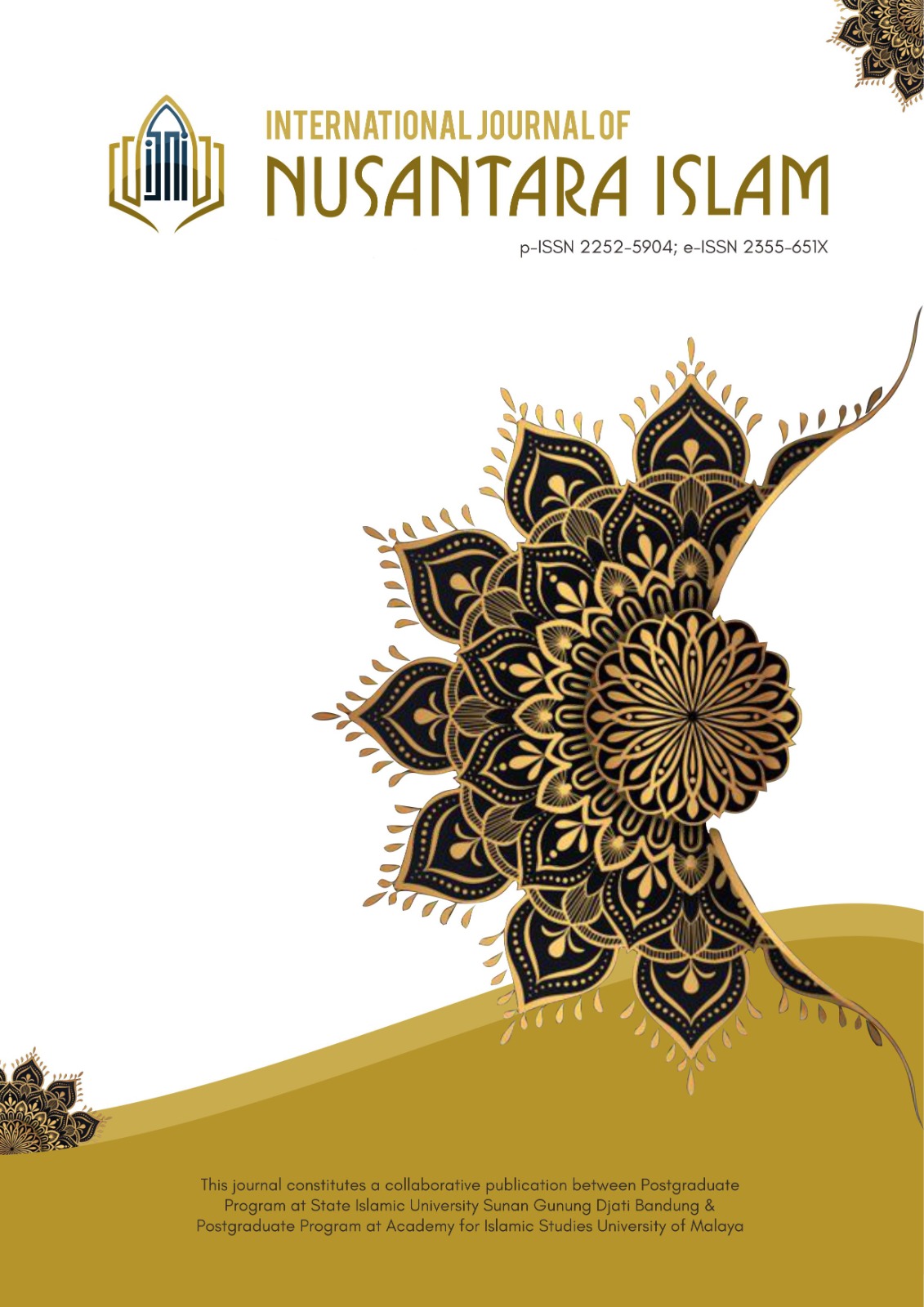Religious Thinking of Ashʿarite School
Main Article Content
Abstract
Article Details
The Authors submitting a manuscript do so on the understanding that if accepted for publication, copyright of the article shall be assigned to International Journal of Nusantara Islam, Sunan Gunung Djati State Islamic University.
The copyright encompasses exclusive rights to reproduce and disseminate articles in all forms and media, including reprints, photographs, microfilm, and similar reproductions, as well as translations. Some or all of the contents of this journal can be stored in databases and transmitted in any form and media without the need for written permission from the International Journal of Nusantara Islam, Sunan Gunung Djati State Islamic University.
The Editors and the Advisory International Editorial Board make every effort to ensure that no wrong or misleading data, opinions or statements be published in the journal. In any way, the contents of the articles and advertisements published in the International Journal of Nusantara Islam (IJNI) are sole and exclusive responsibility of their respective authors and advertisers.
References
Abdul Razak Dan Rosihin Anwar, Ilmu Kalam, Bandung : cv Pustaka Setia, 2001.
Harun Nasution, Teologi Islam (Aliran-Aliran Sejarah Analisa Perbandingan), Jakarta: UI Press,1986
Ghazali, Adeng Muchtar, Perkembangan Ilmu Kalam Dari Klasik Hingga Modern, Pustaka Setia, Bandung, cet. ke-1, 2005.
Harun, Islam ditinjau dari Berbagai Aspeknya, UI PRESS, Jakarta, 1979, jilid. ke-2.
Hasan Zaini, Tafsir Tematik Ayat-ayat Kalam, jakarta: Pedoman Ilmu Jaya, 1996
Hasbullah Bakry, Di sekitar Filsafat Skolastik Islam, Jakarta: Tintamas, 1973
Ilhamuddin, Pemikiran Kalam al-Baqilani; Studi tentang persamaan dan perbedaan dengan al-Asyari, Yogyakarta: PT Tiara Wacana Yogya, 1997
Imam Muhammad Abu Zahrah, op. cit., hlm. 71. Lihat pula Harun Nasution, Muhammad Abduh dan Teologi Rasional Mu’tazilah, UI-Press, Jakarta, cet. ke-1, 1987.
Ishak, Muslim, Sejarah dan Perkembangan Theologi Islam, Duta Grafika, Semarang 1988, cet. ke-1
Toshihiko Izutsu, Litt. D., God and Man in the Quran, Tokio, Keio University, 1964
Zahrah, Muhammad Abu, Aqidah Islamiyah, terj, Imam Sayuti Farid , Al-Ikhlas, t. th.

